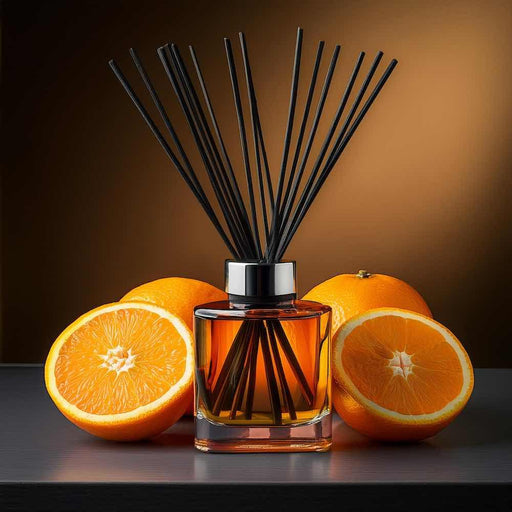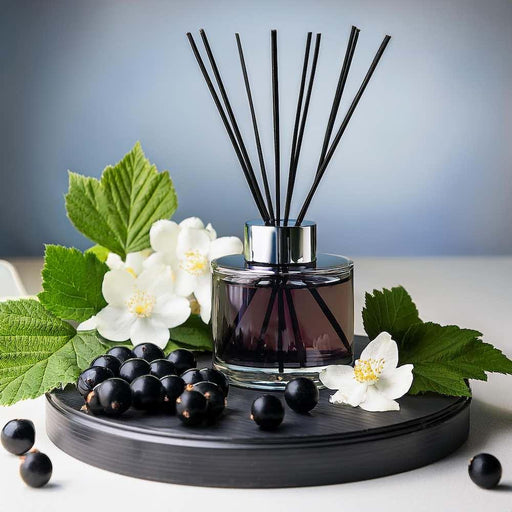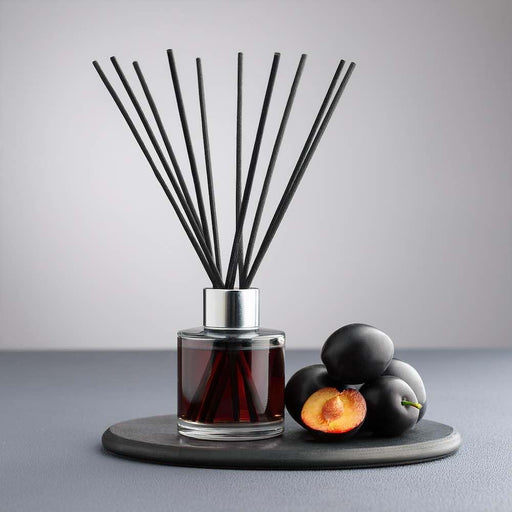
Essential Oils Around Cats & Dogs: Safety Tips Every Pet Owner Should Know
Diffusers are amazing, aren’t they? add a few drops, pop in a few reeds or light a candle, and suddenly your home smells like a spa. But if you have pets—whether it’s a cuddly cat, a bouncy dog, or something more exotic—you might be wondering: is diffusing essential oils safe for them?
The short answer: it depends. Essential oils are powerful plant extracts, and while many are safe for humans when used correctly, pets process them very differently. Before you fire up your diffuser, add reeds or light that candle, let’s dive into what you need to know.
🌿 How Essential Oils Affect Pets
Animals metabolise substances differently than we do. Their livers and kidneys don’t always break down certain compounds efficiently. For example, cats lack certain enzymes that help detoxify phenols (which are present in many essential oils). That means something harmless to us might be toxic to them.
When oils are diffused, tiny particles end up in the air—and your pets breathe that air, too. Some oils can irritate their respiratory systems or even lead to serious symptoms if exposure is high or prolonged.
✅ Essential Oils Generally Considered Safer for Pets
If used sparingly and in a well-ventilated space, these oils tend to be gentler on pets (but always watch for reactions):
-
Lavender (calming, but don’t overdo it)
-
Frankincense
-
Chamomile
-
Ginger
Always use high-quality, pure oils (no synthetic fragrances or additives). And remember, “safe” doesn’t mean risk-free—monitor your pet closely.
⚠️ Essential Oils to Avoid Around Pets
Some oils are well-documented as problematic for animals. Here are some big no-nos for diffusing near pets:
-
Tea Tree (Melaleuca) – toxic to cats and dogs.
-
Eucalyptus – can cause drooling, vomiting, or lethargy.
-
Cinnamon – irritating to their skin and respiratory system.
-
Pine oils – linked to liver damage in cats.
-
Citrus oils (like lemon, orange, lime) – can be very irritating.
-
Ylang Ylang – known to be toxic to cats and dogs.
🏡 Tips for Diffusing Safely with Pets
If you’re set on enjoying your diffuser and keeping your furry family safe, here’s how to do it:
-
Diffuse in a well-ventilated area. Open windows or doors so the scent doesn’t overwhelm your pet.
-
Give your pet the choice to leave. Never trap them in a room with a running diffuser.
-
Start with a small amount. A few drops will do if its an electric diffuser or 6 reeds are plenty—less is more.
-
Watch for symptoms. If your pet starts sneezing, coughing, drooling, or acting strange, turn off the diffuser immediately.
-
Store oils safely. Keep bottles out of reach—ingesting them can be far more dangerous than inhaling.
💡 Final Thoughts
You don’t have to pack away your diffuser forever, but you do need to be mindful. Your pet’s safety comes first.
Research each oil before use, keep your pets’ unique sensitivities in mind, and when in doubt, err on the side of caution.
A home can smell lovely and be pet-safe—it just takes a little extra care. 🌱🐾
Featured collection
Amber & Sweet Orange Reed Diffuser
Introducing the Amber & Sweet Orange Reed Diffuser, a harmonious blend of vibrant citrus and warm, earthy notes. The fragrance opens with brigh...
View full detailsAmber & Violet Reed Diffuser
Introducing the Amber & Violet Reed Diffuser, a captivating blend where the delicate floral notes of violet meet the rich warmth of amber. The ...
View full detailsBaies Sauvage Reed Diffuser
Introducing the Baies Sauvage Reed Diffuser, a luxurious scent experience that captures the essence of wild nature in its most enchanting form. Thi...
View full detailsBlack Plum and Rhubarb Reed Diffuser
Introducing the Black Plum and Rhubarb Reed Diffuser: an exciting and unique way to fill your home with fragrance! This vibrant reed diffuser not o...
View full detailsBlackberry and Bay Reed Diffuser
Discover the fresh burst of nature inside your home with a Blackberry and Bay Room Reed Diffuser! A unique combination of delicious blackcurrants, ...
View full details




